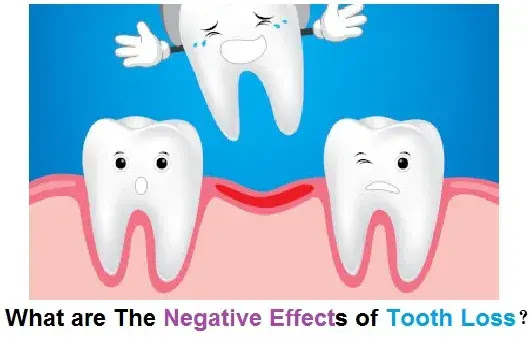1. Improper bite and jaw disorders
The gap left by one or more of the missing teeth causes a malfunction in the orthodontics or dental pressure inside the mouth. The teeth no longer bite together as they would with a full set of upper and lower dentition. Incorrect bite may lead to orthodontic conditions, such as misaligned teeth and malocclusion. The jaw may be completely affected, resulting in jaw tapping or TMJ function.TMJ disorders may cause pain that radiates throughout the face, head, neck and back. Migraine is often linked to TMJ conditions.
2. Damage to tooth structure and gum tissue
When teeth do not bite together correctly, pressure is placed on other teeth and gum tissue that may cause wear or trauma. Teeth may be at risk of fracture, chipping or breaks and damage may occur to existing teeth restorations. Gum tissue may become sensitized and inflamed. Damaged teeth and gums increase the risk of gum disease and tooth loss.
3. Further tooth and bone loss
A damaged tooth is more likely to become infected as plaque and bacteria colonises around and within the tooth. Infected dental pulp may lead to an abscess or infected tooth root canals. The dental pulp houses the tooth’s nerves and blood supply. When infection sets in, toothache may start. Should the nerves become damaged, the entire tooth may not be saved even with root canal treatment.
An infected tooth may spread infection through the blood supply and tooth root canals causing further potential tooth loss. Oral diseases, such as gum disease, cause the disintegration of the gum ligament that connects the teeth to the jawbone, causing further bone loss.
4. Systemic infection
Oral infection may spread through the tooth’s blood supply and root canals to the rest of the body. Systemic infections weaken the body’s immunity, increasing vulnerability to disease. Poor immunity, infection and diseases may result in cardiovascular conditions, diabetes, cancers and a range of other health complications or disabilities.
5. Poor chewing and feeding capacity
Incorrect sting resulting from lost teeth reduces chewing function and ability. The result is that some foods become less edible, narrowing dietary choices and nutrition. If the missing teeth are not replaced, the individual may suffer from malnutrition and health disorders as a result. Vitamin and mineral deficiency weakens the functions of the organs and bones.
6. Loss of face size
Lost tooth gaps and bone loss give the face a sunken, graphic and tired look that detracts from natural beauty and freshness, and accelerates the effects of aging.
7. Pain and discomfort
These negative effects of lost teeth can cause a lot of pain and discomfort that affect a person's sense of well-being and ability to participate in work and enjoy life activities.
8. Emotional and psychological distress
Pain, poor oral condition and weakening physical health may impact emotional and psychological health. Some people, as a result, develop mental health conditions such as depression. Loss of interest in relationships with others and life may follow where tooth loss causes pain, distress and poor health.
You can learn more about missing teeth at orthodontics Harley Street and learn about how many of these issues can be treated with modern braces.





.webp)



.webp)


Social Plugin